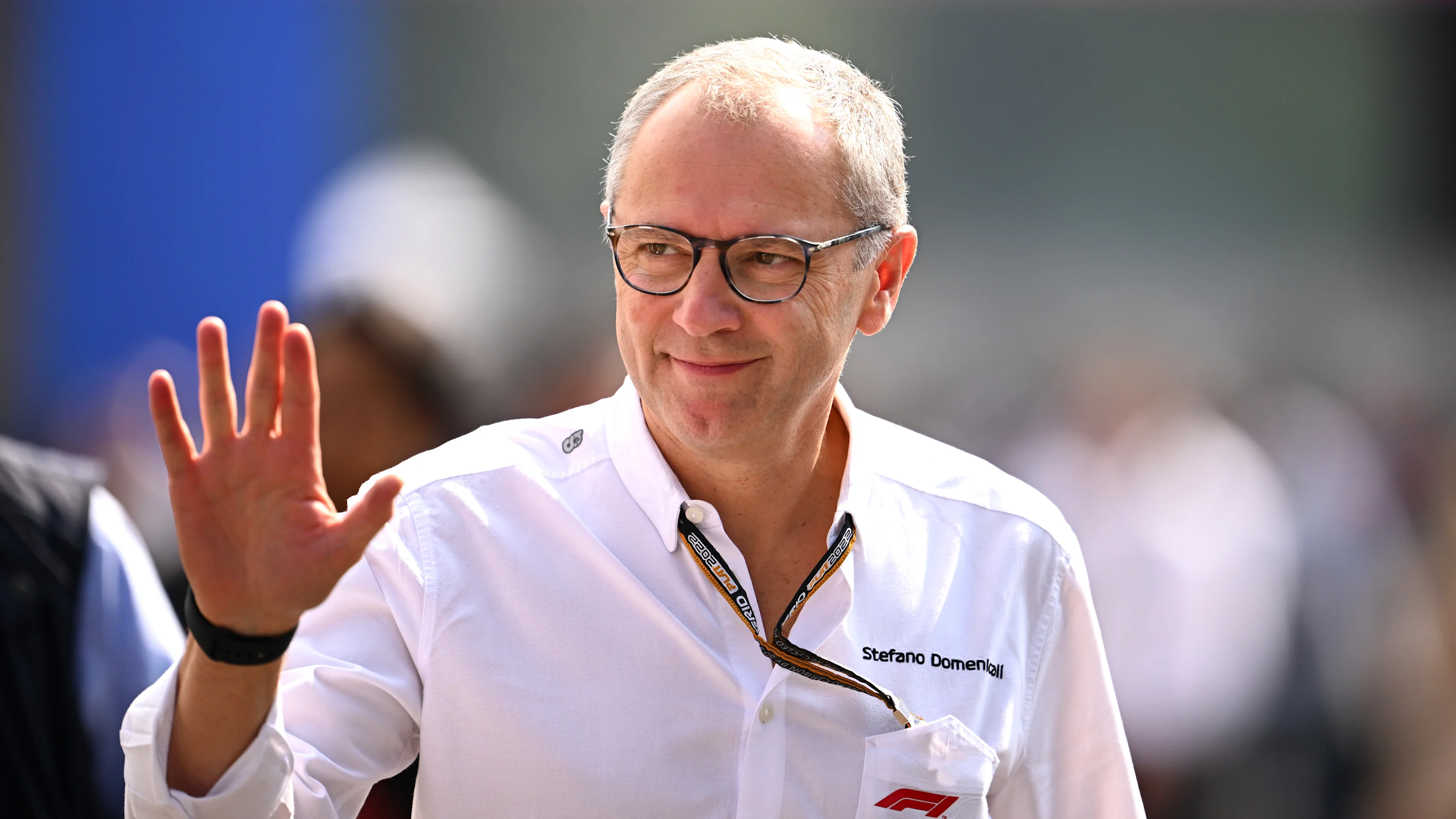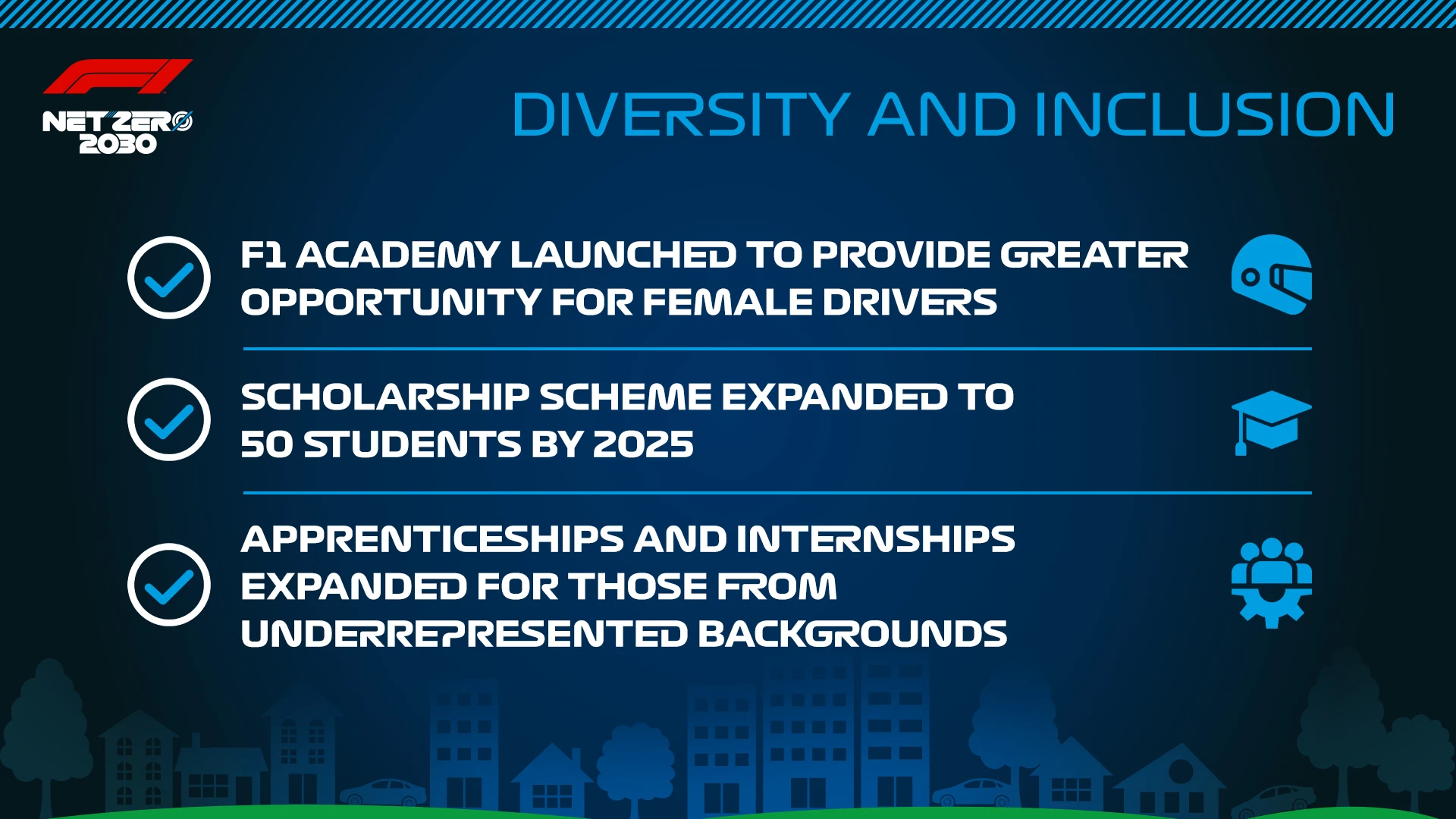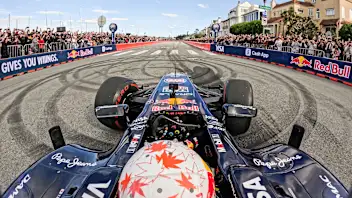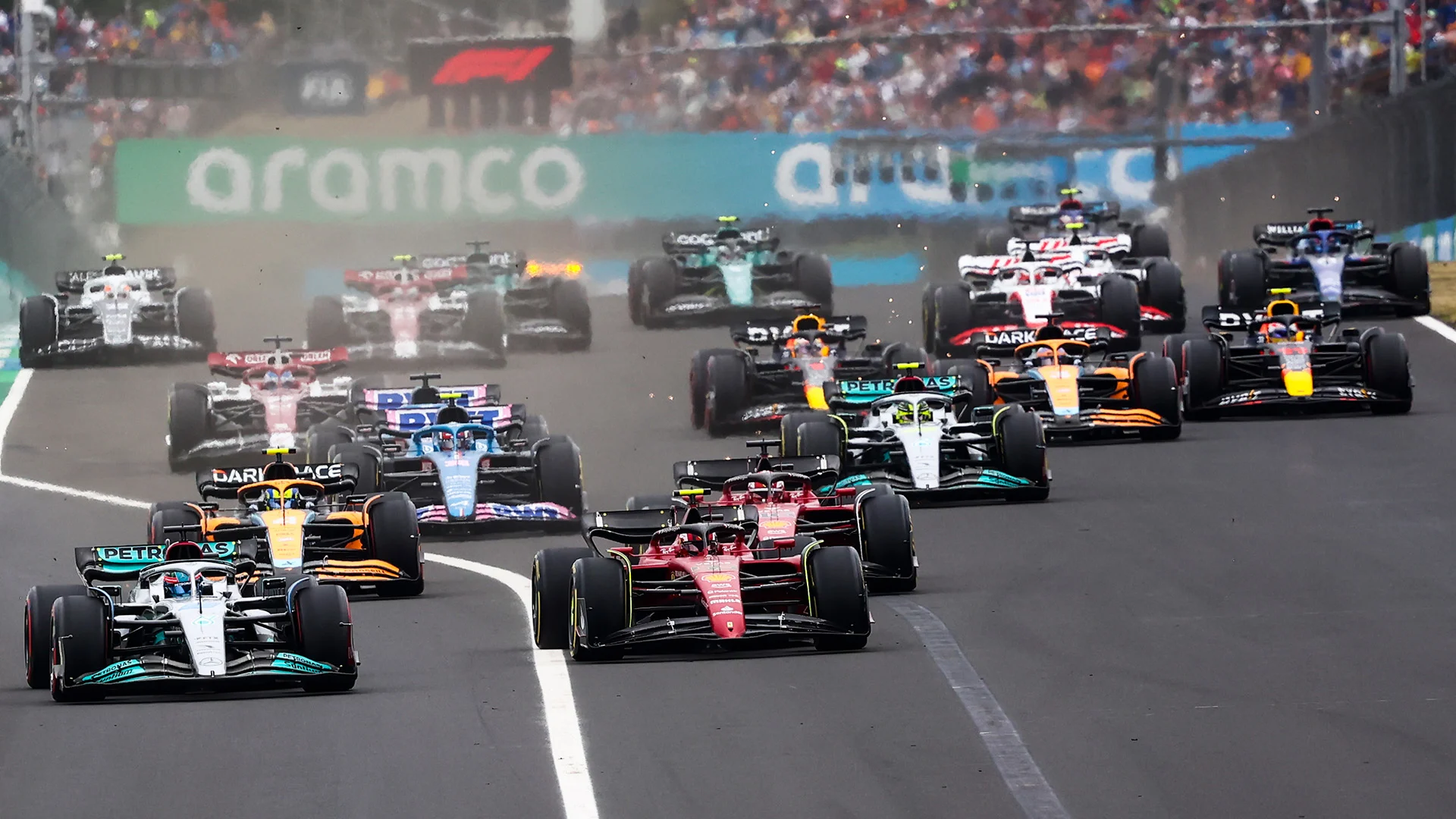Formula 1 President and CEO Stefano Domenicali has expressed his pride at the steps the sport is making around sustainability and diversity and inclusion – but has stressed the need to “continue to make progress” on these key areas moving forward.
Back in 2019, F1 launched a Sustainability Strategy based around three pillars: to achieve Net Zero Carbon by 2030, including delivering advanced sustainable fuels; to leave a legacy of positive change wherever it races; and to take steps to build a more diverse and inclusive sport by removing barriers, nurturing talent and inspiring change.
Over the last four years, a huge amount of work has been undertaken to achieve these targets, with innovation, inclusivity and sustainability at the heart of F1’s future growth and values.
READ MORE: F1 continues push to hit Net Zero Carbon by 2030 target
“We are committed to making Formula 1 more sustainable and increasing diversity and opportunity across this incredible sport. We remain focused on these very important objectives and have continued to make strong progress in 2022,” said Domenicali as part of an update on how F1 has developed over the last 12 months.

“We have delivered important initiatives on our journey to be Net Zero Carbon by 2030, expanded our scholarship programme for underrepresented groups and announced the F1 Academy that will provide opportunities for young female drivers to begin their journeys to the highest levels of our sport.
“We are proud of what we are delivering, but we know we must continue to make progress and deliver positive lasting change for Formula 1.”
Ellen Jones, Head of Sustainability at F1, added: “We’re now three years into our journey to Net Zero by 2030 and it’s fantastic to see the progress that’s been made already.
READ MORE: Net Zero Carbon – How Formula 1 is going to meet this ambitious target by 2030
“The work that’s going on behind the scenes to bring this strategy to life is tireless and we are confident that we are building strong foundations for the future of our business and sport.
“Thank you to everyone across Formula 1, from our fans, teams, race promoters, and many more, for your efforts this year as we build a more sustainable and inclusive business. We look forward to working with you even more in the next year.”
Throughout 2022, F1 took several key steps ensure that it delivered against its sustainability goals, including the hiring of a Head of Sustainability and Sustainability Coordinator, maintaining its FIA 3 Star Environmental Accreditation and launching a Net Zero by 2030 campaign to reinforce its overarching goals.
Since making the Net Zero commitment, F1 has acted to reduce its carbon footprint by introducing remote broadcast operations, redesigning freight containers to allow more efficient aircraft to be used, transitioning to 100% renewable energy in F1 offices and working towards regionalising the F1 calendar.
Alongside this, F1 has been engaging with race promoters to create a sustainability plan for each event and develop year on year targets, with the 2022 season seeing more than 80% of promoters involved in community initiatives such as surplus food donation to local charities and engagement with local causes, including education and outreach.
Over 80% of promoters also made strides in reducing single use through water refill stations, increased recycling facilities and refillable cups; over 70% started offering greener ways to reach the race through solutions such as shuttles and broader support of public transport; and over 50% started powering their events using alternative energy sources like solar panels, green tariffs and biofuels.
As for racing fuel, while its use represents less than 1% of F1’s emissions, developments in this area can have a significant effect on the global transportation sector. And, after creating the most efficient hybrid engine in the world, F1 and the FIA are leading in the development of a sustainable fuel solution for 2026 and beyond – when new engine regulations will come into play.
Designed with a ‘drop-in’ feature to accelerate adoption and reduce costs for use in existing road cars (both internal combustion engines and hybrids), the fuel will be carbon neutral and has the potential to impact the entire global car parc.
By 2030, there will be an estimated 1.4 billion cars on the road globally, with only 8% pure Battery Electric Vehicles, leaving more than 1.2bn Internal Combustion Engine (ICE) vehicles. F1’s sustainable fuel would be available for use in all of these existing vehicles, reducing emissions globally, while it could also filter through to heavy road transport, shipping and aviation.
The fuel is already in production with support from key stakeholders within F1, including F1 Global Partner Aramco, fuel providers in the sport, F1 teams and manufacturers, while Formula 2 and Formula 3 will also be sustainably fuelled by 2027, with a 55% sustainable component fuel to be introduced in both championships from the 2023 season.

A host of diversity and inclusion initiatives spanning engineering scholarships, internships, apprenticeships, career insight days and more have also been implemented, along with D&I training for all employees and strong progress regarding the gender pay gap within the organisation.
And, more recently, an all-new, all-female series – F1 Academy – was announced, with the aim of helping develop and prepare young female drivers to progress to higher levels of competition. F1 has committed €2.25m to the project, which will begin racing in 2023.
READ MORE: Formula 1 announces F1 Academy, a new all-female driver series for 2023
F1 Academy will consist of five teams, all run by experienced current F2 and F3 outfits and each entering three cars, to make up a 15-car grid. The inaugural season is set to feature seven events – likely to include one F1 weekend – comprising three races each for a total of 21 races, plus 15 days of official testing.
Next Up
Related Articles
 UnlockedPredict the Australian GP Winner for a chance to win
UnlockedPredict the Australian GP Winner for a chance to win Hamilton vows ‘I’m not going anywhere’ ahead of 2026
Hamilton vows ‘I’m not going anywhere’ ahead of 2026/16x9%20single%20image%20-%202026-02-21T102613.146.webp) 5 key questions after the second Bahrain test
5 key questions after the second Bahrain test.webp) ExclusiveThe Audi prospect making waves in single-seater racing
ExclusiveThe Audi prospect making waves in single-seater racing See Tsunoda back in a Red Bull at special San Francisco demo
See Tsunoda back in a Red Bull at special San Francisco demo/Winners%20&%20Losers%20DISPLAY%20template%20(1).webp) Winners & Losers5 Winners and 3 Losers from the second Bahrain test
Winners & Losers5 Winners and 3 Losers from the second Bahrain test
